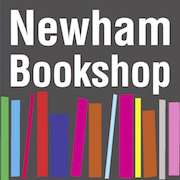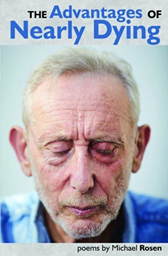Michael Rosen
The Advantages of Nearly Dying
Poems
Michael Rosen was dangerously ill from Covid at the beginning of 2020 and as doctors told him, if he hadn’t received treatment, he would have ‘gone’. While he was in hospital, 42% of the patients on his intensive care ward died. He spent three months in hospital, of which nearly seven weeks were in an induced coma, followed by several weeks recovering in an ordinary ward and then in a Rehabilitation Hospital. He couldn’t walk and his memory was damaged. Three years later his hearing and eyesight are still badly affected (“I can’t hear with my left eye, I can’t see with my left ear and I get muddled”).
Following his best-selling Covid memoirs Many Different Kinds of Love: a story of life, death and the NHS and Sticky McStickstick: the friend who helped me walk again, his new collection for grown-ups records his bewilderment with what’s happened, and shares his thoughts about the politics of the pandemic – the ‘crazed incompetence’ of the Tory government and the war against the ‘Oldies’ that led to over 200,000 dead in the UK. Unforgiving, whimsical, grim, warm, philosophical and comical, The Advantages of Nearly Dying is a book about hospital appointments, waiting-rooms, blood-tests, brain-scans, eye-tests – and a song of praise for the NHS.






